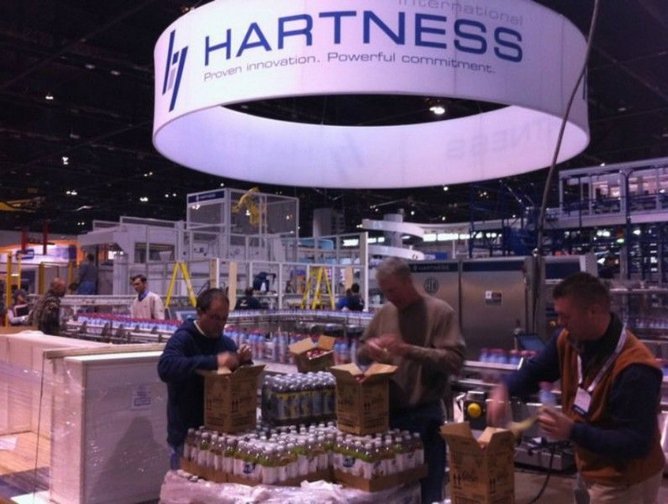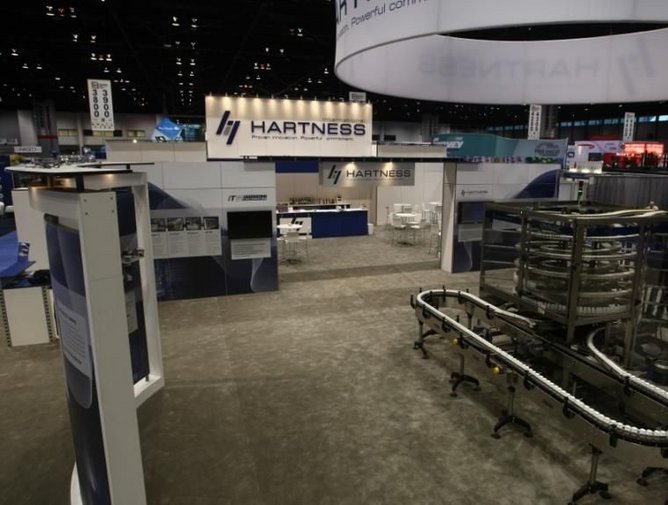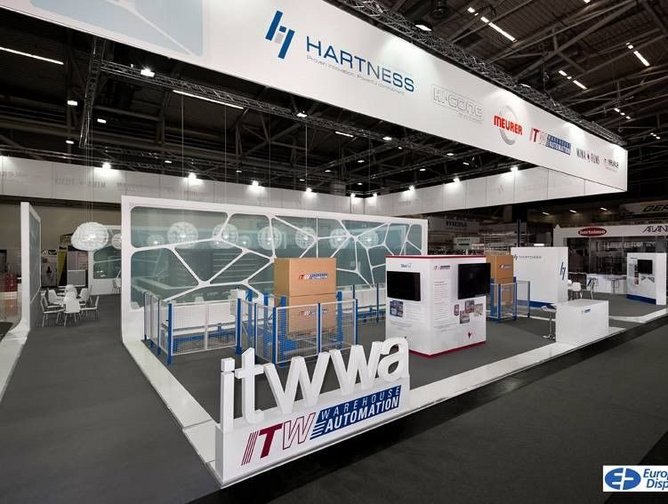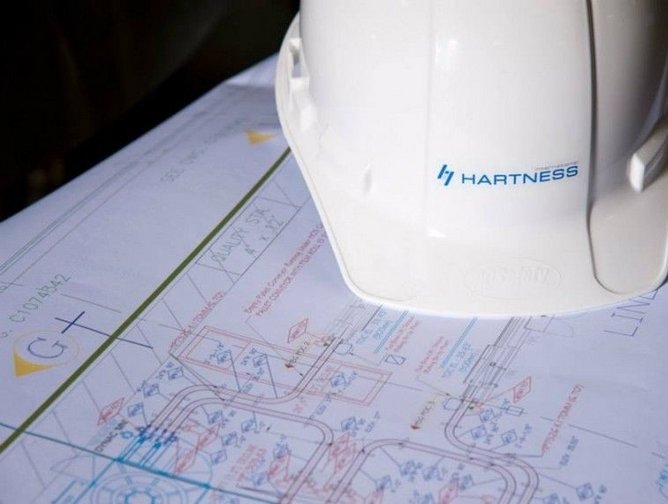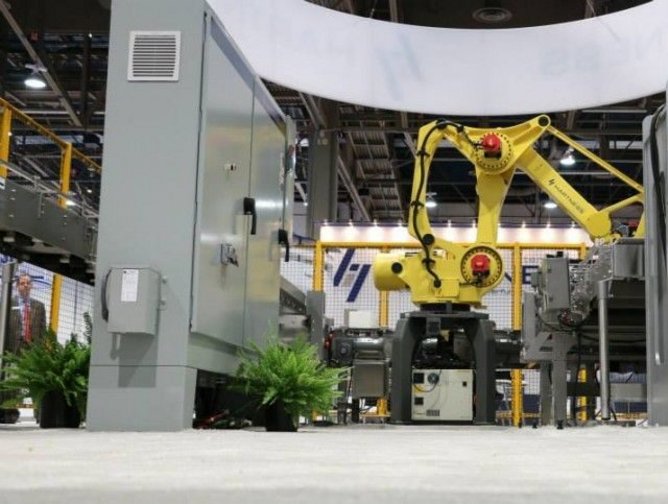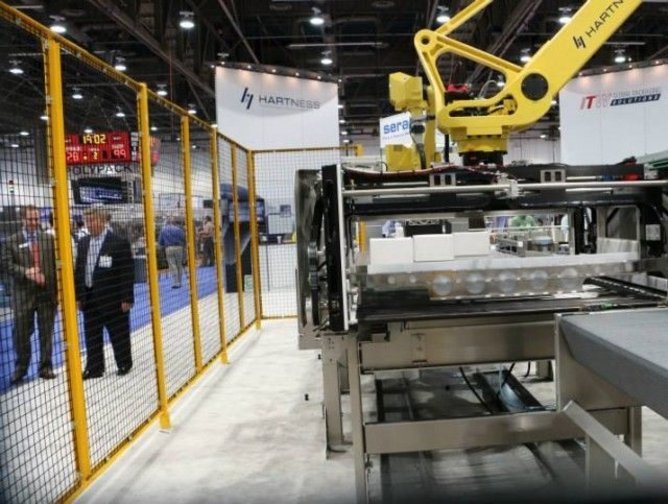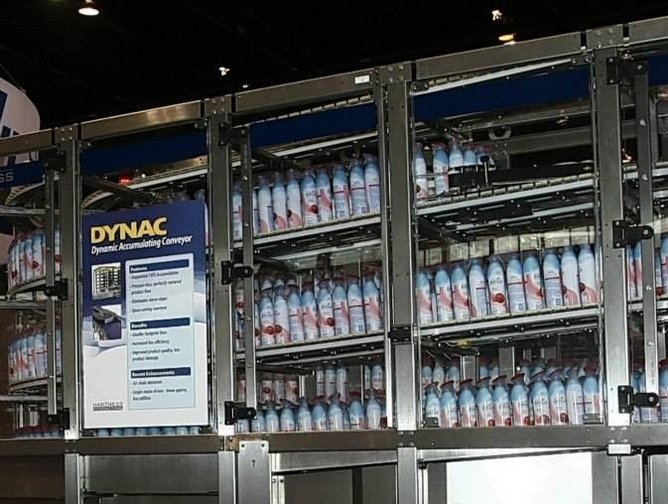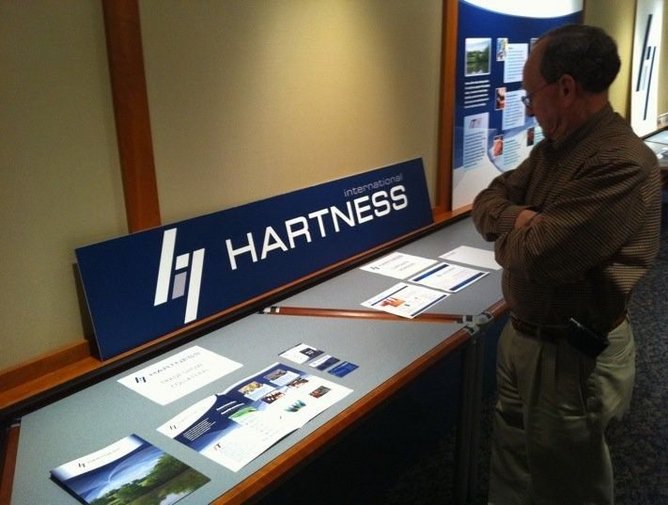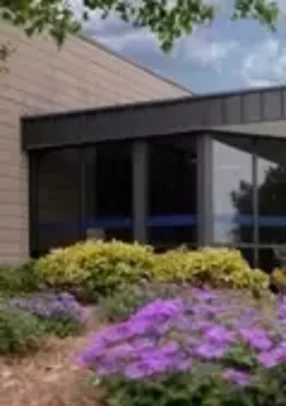How Hartness International provides full system integration solutions to clients
Hartness International started in 1940 as a small company in Greenville, South Carolina, when Tom Hartness purchased the Pepsi bottling rights to manufacture the case packing equipment for the area. Since then, the company has grown tremendously and has made a name for itself by now offering a full range of system integration solutions to its customers. Scott Smith, vice president of global marketing and business development at Hartness International, has worked with the company for 17 years, starting in sales for the western USA and Asia. He then transitioned to director of sales in North America sales before he eventually earned his title as vice president of global marketing and business development. Smith has witnessed the company’s growth over the years and looks forward to Hartness International’s continued success in the manufacturing industry.
Innovative Technology
One way that Hartness Intl. stands apart from the competition is in its use of innovative technology. In 1998, the company developed the DYNAC, which is a buffering and accumulation system that ensures a production line will continue to run even if one of the functions stop. The DYNAC offers customers the ability to increase their operating efficiency and has become one of Hartness Intl.’s most famous products, with over 4000 installed in businesses around the world. Currently, the company is working to evolve the DYNAC even further so that it may benefit companies in industries that Hartness Intl. has not yet become involved with.
The company has been taking a new approach to technological innovation by reaching out to its customers directly to understand what their unmet needs are currently and looking forward three to five years to determine specifically what the unmet needs will be and then use that data to guide the innovation process. “We are actually going in on the front end of projects and helping our clients develop those projects and I think were seen today as more relevant than we’ve ever been. If you had to lay out the core competencies of the business it would be customer satisfaction and innovation,” states Smith. Hartness Intl. strives to make sure their innovation dollars spent are meeting customer needs. It is how the company determines how to invest and what areas to develop next.
One of the company’s most recent investments in technology has been in laser technology. The use of lasers to cut the stainless steel to form the company machines in the warehouse allows the warehouse to run “lights out”. This means that the lasers are operating even when there is no one in the building. The precision and accuracy of the lasers enables the company to utilize a higher percentage of stainless steels on the sheets, saving money while also providing a more sustainable operation. Hartness Intl. invests significantly in lasers and prides itself in being best in class in laser cutting.
Sustainable Operations
In addition to the lasers that are used in the warehouses which increase sustainability, in 2008 Hartness Intl. developed a vertically integrated process for painting glass bottles that is a substitute for the common process known as Applied Ceramic Labels (ACL). The ACL process applies ink on bottles in a way that provides superior adhesion. This method involves painting bottles which are then fired to 2000 degrees for several hours to bake the paint onto the bottle, thus emitting chemicals and metal solvents into the environment. Hartness’s unique process, using Hartness Inks, involves UV curable binding technology which has superior adhesion but is much more environmentally safe than ACL. “We’ve developed a UV ink that adheres as well as the ACL process without having to go through the whole curing process that ACL does that consumes a lot of energy and puts things into the air. There are no hard metals in our ink. Also, as opposed to a 3-4 hour curing time in an oven, we apply UV light to the ink and it cures immediately; in less than a second,” Smith explains.
The sustainability movement has had an effect on the company in other ways as well because now customers are requesting for a more gentile way of handling the products. Hartness Intl. has implemented robotics to assist in the process. Smith states, “Our customers are trying to do more with less so when you do that from a packaging and manufacturing standpoint, you have to be able to handle the packages a little differently. Robotics offers us the ability to handle packages very gently so that it enables our customers to, what we call, ‘Light Weight’ their products. The sustainability movement has certainly impacted us from R&D and innovation standpoint without question.”
Strategic Acquisitions
In 2009, Hartness International was acquired by Illinois Tool Works, ITW, which has proven to be a wise move for Hartness Itnl. ITW is an international company with about fifteen billion in annual revenue, fifty thousand employees and locations in over fifty countries. Because of ITW’s global presence and standing, Smith reflects that “The acquisition has enabled us to invest more significantly in things like innovation in the development in new products. It’s made it easier for us to expand the business internationally because of their global footprint.” With the quality service and great reputation that Hartness Intl. had already achieved through its many years of operation in the industry, this union with ITW provides Hartness Intl. with the financial support needed to continue growing. ITW enables the company to build multiple pieces of equipment, such as case packing, robotics and buffering systems, rather than building just one piece of equipment. The company’s division of ITW offers solutions for the full back end of its clients’ supply chain. Hartness Intl. does everything from designing packaging lines to providing innovative consumer products multipacks, all throughout the warehouse. “At the end of the day, that’s our strategy. We want to be the company that our customers come to that can provide the entire back end of their supply chain, with the financial backing of the 15 billion dollar fortune 200 company,” states Smith.
Though the company has been acquired by ITW, it still maintains the Hartness family culture that made the experience of doing business with the company enjoyable and memorable. It still has the core family values but is now backed with the financial standing to be more than a manufacturer and provide the full system integration solutions to its clients.
